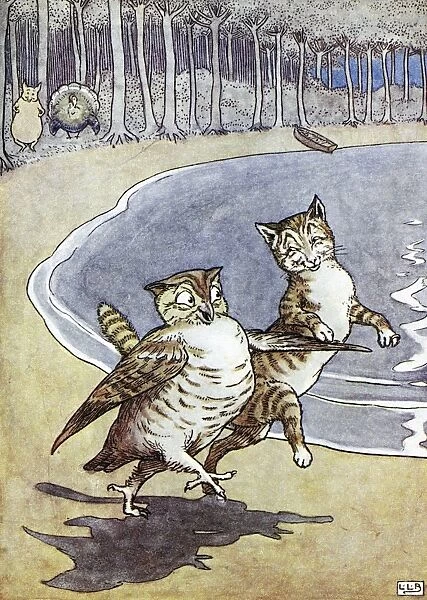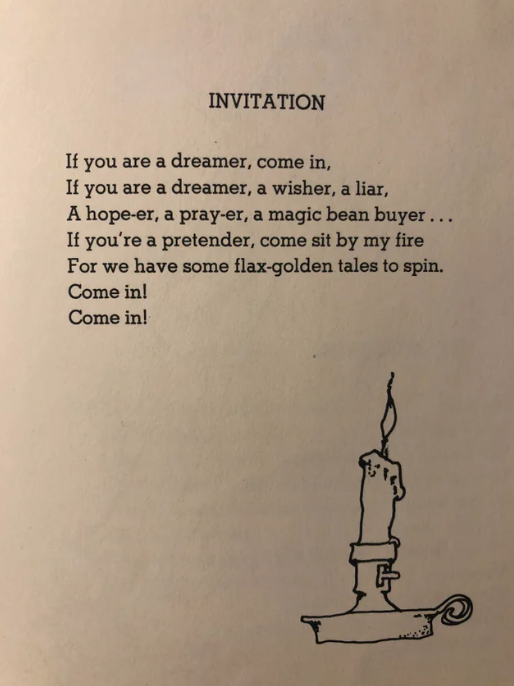Last week I began working at the perfect job for me. I am teaching Comp II: Writing about Literature at Northark College.
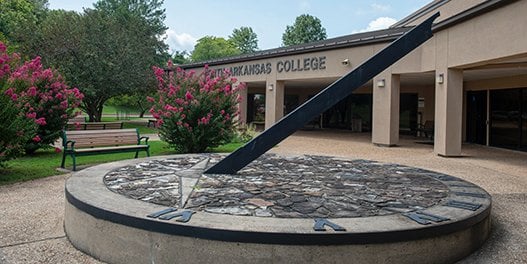
Northark College is a beautiful school in the gorgeous Ozark Mountains.

I love the fact that Northark College is within minutes from where the opening of the movie Tuck Everlasting was filmed:
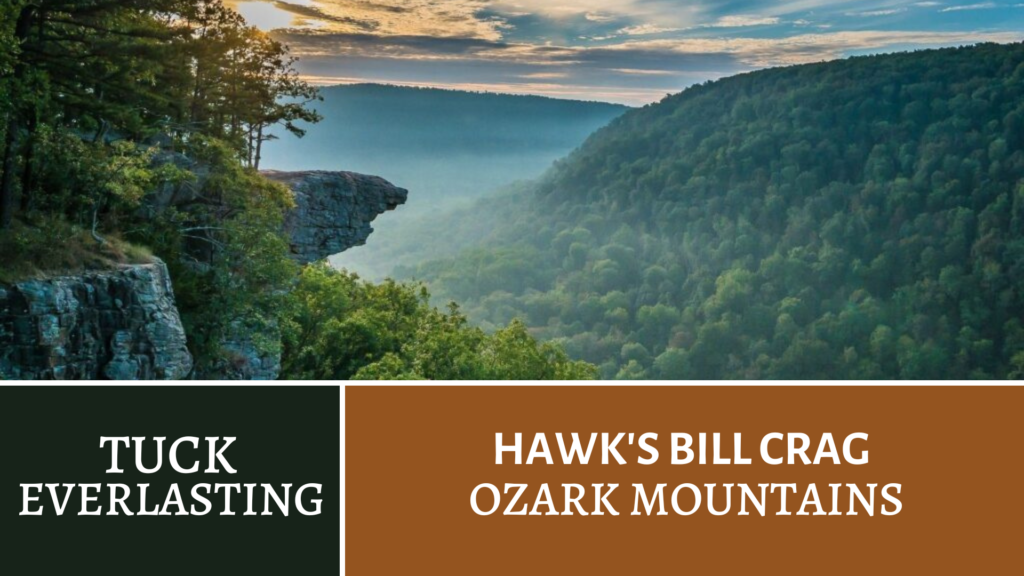
Tuck Everlasting might be my favorite Junior Fiction Novel, and because of my job at Northark, I re-visited Tuck. I am not using the text of Tuck Everlasting in my college class, but I wanted to study again what I love about that book. In order to teach others to write, I need to understand how great writing works.
You see, the most wonderful part of my new job is that I am getting paid to re-visit some of my favorite literature, and I am sharing those concepts with the fresh minds in my class. Furthermore, I am getting paid to study the tools that some of the greatest writers have harnessed to produce fine writing. In a roundabout way, I am getting paid to study my own craft: Writing. In my opinion, the lyrics of many songs are literature. In this post, I’ll talk about how a song uses symbols and figurative language.  Anyone who has survived Valentine’s Day in the USA knows that the Rose is a Symbol of Love.
Anyone who has survived Valentine’s Day in the USA knows that the Rose is a Symbol of Love.
from Maud (Part I)
BY ALFRED, LORD TENNYSON
“Come into the garden, Maud,
For the black bat, night, has flown,
Come into the garden, Maud,
I am here at the gate alone;
And the woodbine spices are wafted abroad,
And the musk of the rose is blown.
_________________________________________________
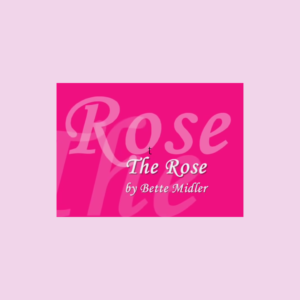
“A man is like a lion” is a simile. A simile includes the words “like” or “as,” and the reader can readily see that the writer has used a simile:
Let’s look for the metaphors in the following song “The Rose:”
The Rose
by Amanda McBroom
Sung by Bette Midler
Some say love, it is a river
That drowns the tender reed.
Some say love, it is a razor
That leaves your soul to bleed.
Some say love, it is a hunger, an endless aching need.
I say love, it is a flower,
And you, its only seed.
It’s the heart, afraid of breaking,
That never learns to dance.
It’s the dream, afraid of waking,
That never takes the chance.
It’s the one who won’t be taken,
Who cannot seem to give.
And the soul, afraid of dyin’,
That never learns to live.
When the night has been too lonely,
And the road has been too long,
And you think that love is only
For the lucky and the strong,
Just remember in the winter
Far beneath the bitter snows,
Lies the seed, that with the sun’s love,
In the spring becomes The Rose.
Writer(s): Mc Broom Amanda

Again, “The Rose” is loaded with metaphors. Let’s look at how those metaphors work”
“love, it is a river”
“Love, it is a river” is a metaphor. By saying that love IS a river, the writer is tapping into all the things that we know about rivers, and the writer is asking us to connect our understandings of rivers to love. In doing so we, the readers, can glean a better understanding of the totality of what the writer is saying.
Rivers are major themes in literature. In some literature, rivers are pathways to freedom.
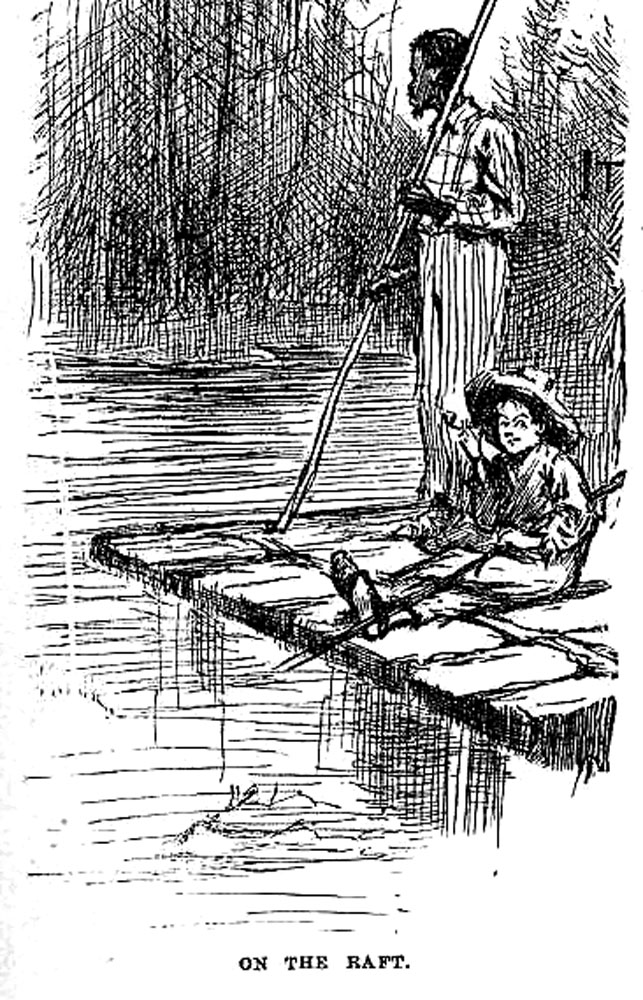
In The Adventures of Huckleberry Finn, The Mississippi River is symbolic of freedom in two ways.
- By traveling UP the Missippi River–to the North–the enslaved Jim is traveling toward an end to his enslavement.
- As Huck rides along the river, he is seeking freedom from his brutal father.
Paul Robeson painted the freedom of the Mississippi River in the song Ol’ Man River–in the movie Showboat.
In other literature, rivers represent the flow of life itself.

In the following song, Proud Mary is a Riverboat, and the Big Wheels are the paddle wheels that propel the boat up or down the river.
More References to Rivers in Literature:
“TWENTY bridges from Tower to Kew –
Wanted to know what the River knew,
Twenty Bridges or twenty-two,
For they were young, and the Thames was old
And this is the tale that River told:”
― Rudyard Kipling“On and on they flew, over the countryside parceled out in patches of green and brown, over roads and rivers winding through the landscapes like strips of matte and glossy ribbon.”
― J.K. Rowling, Harry Potter and the Deathly Hallows“Eventually, all things merge into one, and a river runs through it. The river was cut by the world’s great flood and runs over rocks from the basement of time. On some of the rocks are timeless raindrops. Under the rocks are the words, and some of the words are theirs.”
― Norman Maclean, A River Runs Through it and Other Stories“Have you also learned that secret from the river; that there is no such thing as time?” That the river is everywhere at the same time, at the source and at the mouth, at the waterfall, at the ferry, at the current, in the ocean and in the mountains, everywhere and that the present only exists for it, not the shadow of the past nor the shadow of the future.”
― Hermann Hesse, Siddhartha
Here’s another Metaphor in “The Rose:”
‘love, it is a razor’
“I ‘am shaggy as rivers,
forests and mountains
My eyes see the universe
natural and super
My mind is of many cuts
Non-identical
I have fought demons
Half-horse, half alligator
I ‘am victorious, I bled”
― John E. Wordslinger
“love, it is a hunger”
“There are people in the world so hungry, that God cannot appear to them except in the form of bread.”
― Mahatma Gandhi“It seems to me we can never give up longing and wishing while we are still alive. There are certain things we feel to be beautiful and good, and we must hunger for them.”
― George Eliot
“love, it is a flower,”
“A garden to walk in and immensity to dream in–what more could he ask? A few flowers at his feet and above him the stars.”
― Victor Hugo, Les Misérables“…always
it’s
Spring and everyone’s
in love and flowers pick themselves”
― e.e. cummings, Collected Poems
“It’s the heart, afraid of breaking,
That never learns to dance.”
“You’ve gotta dance like there’s nobody watching,
Love like you’ll never be hurt,
Sing like there’s nobody listening,
And live like it’s heaven on earth.”
― William W. Purkey
“And hand in hand, on the edge of the sand,
They danced by the light of the moon.”
― Edward Lear, The Owl and the Pussycat“And those who were seen dancing were thought to be insane by those who could not hear the music.”
― Friedrich Nietzsche
“It’s the dream, afraid of waking,
That never takes the chance.”
“You may say I’m a dreamer, but I’m not the only one. I hope someday you’ll join us. And the world will live as one.”
― John Lennon
“If you are a dreamer come in
If you are a dreamer a wisher a liar
A hoper, a pray-er a magic-bean-buyer. . .
If you’re a pretender come sit by my fire
For we have some flax-golden tales to spin.
Come in!
Come in!” ―“You know you’re in love when you can’t fall asleep because reality is finally better than your dreams.”
― Dr. Seuss
“It’s the one who won’t be taken,
Who cannot seem to give.”
“It’s not how much we give but how much love we put into giving.”
― Mother Theresa“Don’t Just
Don’t just learn, experience.
Don’t just read, absorb.
Don’t just change, transform.
Don’t just relate, advocate.
Don’t just promise, prove.
Don’t just criticize, encourage.
Don’t just think, ponder.
Don’t just take, give.
Don’t just see, feel.
Don’t just dream, do.
Don’t just hear, listen.
Don’t just talk, act.
Don’t just tell, show.
Don’t just exist, live.”
― Roy T. Bennett, The Light in the Heart“You give but little when you give of your possessions.
It is when you give of yourself that you truly give.”
― Kahlil Gibran, The Prophet
And the soul, afraid of dyin’,
That never learns to live.
“Don’t be afraid of death; be afraid of an unlived life. You don’t have to live forever, you just have to live.”
― Natalie Babbitt, Tuck Everlasting
“the seed, that with the sun’s love,
In the spring becomes The Rose.”
“Deep in the secret world of winter’s darkness, deep in the heart of the Earth, the scattered seed dreams of what it will accomplish, some warm day when its wild beauty has grown strong and wise.”
― Solstice
Sometimes a rose’s Thorns, and not the Flower, are the symbols in a literary piece.
There’s A Thorn Tree in the Garden
by Bobbie Whitlock – Derek and the Dominoes
[Verse 1]
There’s a thorn tree in the garden
If you know just what I mean
And I hate to hurt your feelings
But it’s not the way it seems, ’cause I miss her
[Verse 2]
She’s the only girl I’ve cared for
The only one I’ve known
And no one ever shared more love
Than we’ve known and I miss her
___________________
Even though symbols are fairly reliable tools for understanding what writers are saying, the reader still needs to read closely. The writer may be using the symbol in a satirical way.
satire
Let’s look at another rose poem and try to understand whether or not the poet is being satirical:
One Perfect Rose
by Shirley Jackson
A single flow’r he sent me, since we met.
All tenderly his messenger he chose;
Deep-hearted, pure, with scented dew still wet—
One perfect rose.I knew the language of the floweret;
“My fragile leaves, ” it said, “his heart enclose.”
Love long has taken for his amulet
One perfect rose.Why is it no one ever sent me yet
One perfect limousine, do you suppose?
Ah no, it’s always just my luck to get
One perfect rose.— Dorothy Parker: Complete Poems
